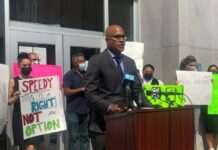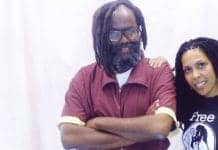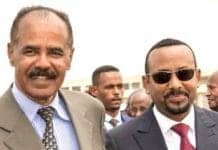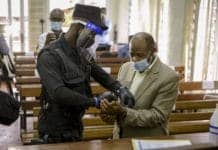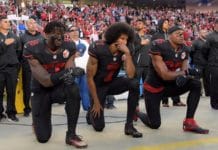by Ann Garrison

The report, which covers the period from 1993 to 2003, was released on Oct. 1 by the Office of the United Nations High Commission for Human Rights. U.N. High Commissioner for Human Rights Navi Pillay says that, though it covers a time period ending in 2003, these crimes continue because the perpetrators have never been prosecuted.
Defense lawyers for the International Criminal Tribunal on Rwanda say, however, that there is no reason to expect justice from an international criminal tribunal.

They will focus instead on pressuring President Barack Obama to end the U.S.’ longstanding military and diplomatic support for Rwandan President Paul Kagame, whose army is most controversially implicated in the report in war crimes, crimes against humanity and genocide against Rwandan Hutu refugees and Congolese Hutus in Congo.

On Saturday morning, Oct. 9, Victoire Ingabire Umuhoza, leader of the FDU-Inkingi, Rwanda’s broadbased opposition coalition of parties, confirmed that the security operatives always outside her home have been replaced by police with firearms, a least six of whom were visible from inside. She also said that expanding the mandate of the International Criminal Tribunal on Rwanda to include the crimes of the Rwandan army and others in Congo, was the best hope for international justice.
But International Criminal Tribunal on Rwanda defense lawyers Christopher Black and Peter Erlinder say that the power of the U.S., the U.K. and their allies so distorts international justice tribunals that international justice cannot be achieved there.

“They’re never going to charge the RPF, because it would be too dangerous. If you start charging the RPF, RPF officers, to save their necks, are going to start talking about others. And then you’re going to get up to the Americans and the British and the Canadians and the Belgians. The whole thing would fall apart. They don’t dare do that.”
Peter Erlinder says that the U.S. controls the decisions of the Security Council and/or ignores them, as it did with impunity in Iraq, and that it will therefore control any attempt to expand the mandate of the International Criminal Tribunal on Rwanda.
“If the United States wants something to happen, in terms of punishing these criminals, there’s a way to do it. If the U.S. doesn’t want it to happen, it won’t happen, tribunals or no. Because the United States controls the ICTR, because the United States controls the ICC, because the United States controls the Security Council. So extending the mandate of the ICTR has no effect unless the policy of the United States changes to allow the prosecution of the RPF and Kagame for the crimes that are already known that they’ve committed, and those crimes have been known for 15 years.”

An excerpt of the “U.N. Mapping Report on Human Rights Abuse in the Democratic Republic of Congo, 1993-2003,” is available at Monthly Review Zine, and the entire report is available from the U.N. High Commission on Human Rights and, in both English and French and accompanied by many responses and related reports, at Friends of the Congo.
KPFA News broadcast Oct. 9
San Francisco writer Ann Garrison writes for the San Francisco Bay View, Digital Journal, Examiner.com, OpEdNews, Global Research, Colored Opinions and her blog, Plutocracy Now. She can be reached at anniegarrison@gmail.com. This story originally appeared on Digital Journal.

 Store
Store



